“Do you blame Shakespeare for any of it?”
The question is so unlikely, so nonsensical coming from such a sensible man, that I can’t suppress a smile. “I blame him for all of it,” I say.
If We Were Villains is frequently compared to Donna Tartt’s The Secret History, with both being considered classics of Dark Academia. And there are many similarities between the books. Both feature a very small, tightknit group of friends who are cloistered in an elite, but also intense, learning environment.
In this book, that translates to a group of seven students entering their fourth year at Dellecher Classical Conservatory. They are drama students who exclusively study Shakespeare. There have been more of them in previous years, but Dellecher has a ruthless policy of culling drama students who do not perform well in their productions, often as many as half in the year. The seven have survived three annual purges and have a close but sometimes tempestuous relationship with each other. This is similar to the small group of Classics students from The Secret History. The narrator of each book feels like an outsider to the group. Richard from The Secret History does not have the same wealthy background as the others and feels a fraud, at times. Similarly, Oliver, the narrator of If We Were Villains, believes he is the least talented of the group, permanently cast as the sidekick. And like The Secret History, we know the outcome of If We Were Villains from the outset: the book opens with Oliver about to be freed from prison after ten years and finally telling the story of what happened to the former police detective in charge of the investigation which ended in his conviction.
But unlike The Secret History, where the group kill Bunny to protect themselves from the consequences of their own actions, and are generally unsympathetic characters, all the characters in If We Were Villains are sympathetic, and their fear of Richard’s increasingly violent behaviour is an understandable motive for each of them.
Something which immediately strikes you as you read this book is the structure. Instead of chapters, the book mirrors the classic dramatic structure Shakespeare used in his plays, divided into five Acts, and each Act into Scenes. And the Acts themselves follow the same pattern of:
- Act I - Exposition;
- Act II - Rising Action;
- Act III - Climax;
- Act IV - Falling Action and;
- Act V - Catastrophe.
And the story itself, part murder mystery and part tragic love story, seems to suggest the work of a modern-day Shakespeare, containing many of Shakespeare's themes of passion, jealousy, fear, revenge, madness and betrayal. It all adds up to a brilliantly told story where the tension builds and builds to the point where it all explodes and we are left reeling with what has just happened.
I said in my review of The Secret History that the Dark Academia aesthetic requires pretentiousness, dark happenings and cult-like behaviour. The opening scene of If We Were Villains tells us that this will easily be satisfied, when we realise that the seven students spend most of their time conversing in bastardised Shakespearean dialogue as their normal speech. They all slip into it naturally, but outsiders cannot easily follow their conversations and think them all pretentious. But for the seven, they have become so immersed in Shakespeare that his words are just part of their lives. They have, by their fourth year, begun to act with each other as if they fit into the role that their teachers assigned them to in their first year - tyrant, hero, villain, femme fatale, ingénue, sidekick and extra. They take on these roles in their daily lives, until it gradually tears them apart. Just as in Shakespeare's tragedies, the characters’ flaws tear them apart, dragging the story to its inevitable conclusion.
Tensions start at the beginning of term when they each are made to explore their insecurities publicly in class. Tensions increase when roles are assigned for the annual performance of Macbeth. Richard, cast since first year as the Tyrant in each of their productions, does not get the title role and reacts jealously. His behaviour alienates his long-time girlfriend, Meredith (Femme Fatale), driving her towards Oliver (Sidekick), thereby further enraging Richard. From here it all spirals into a maelstrom of rage and passion and obsession, culminating in murder. Five of the surviving six actually believe the death is an accident, but are united in covering up a guilty secret that initially binds them together, but ultimately tears them apart. It’s addictive stuff, and brilliantly written.
Oliver feels that he doesn’t belong in this elite group; that he will never be as good as the others. But despite his insecurities, the fact remains that he has made it to fourth year, in an environment that ruthlessly culls students every year. If he wasn’t up to standard, he wouldn’t have made the cut each year. Early scenes in class show that he has a deep understanding of Shakespeare’s works, and several other characters express at different points how much they enjoy scenes with him, even Richard. So we have hints early on that Oliver would be better if he could overcome his feelings of inferiority. But it isn't until Act V that he finally gets to be the tragic hero, as foreshadowed by James in Act I Scene 1.
I loved this book and would recommend it highly.
Related Book Reviewed on this Website

 RSS Feed
RSS Feed Facebook
Facebook Instagram
Instagram YouTube
YouTube Subscribe to our Newsletter
Subscribe to our Newsletter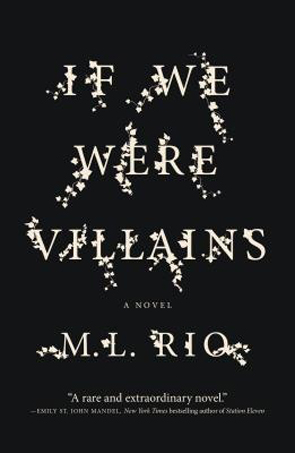

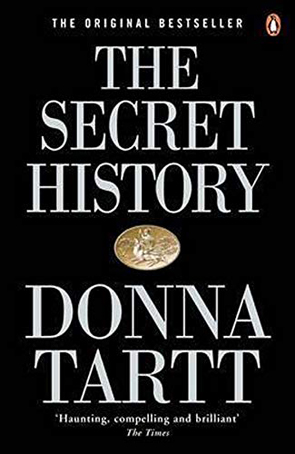

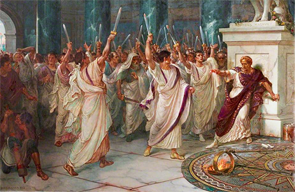
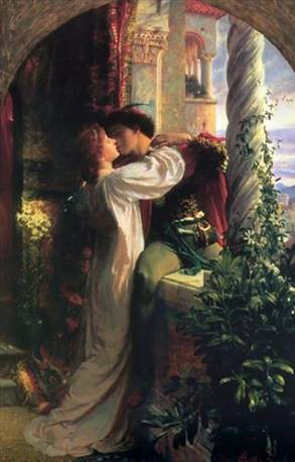
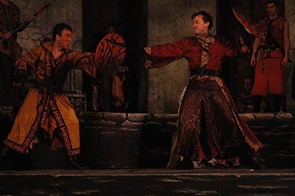

No one has commented yet. Be the first!